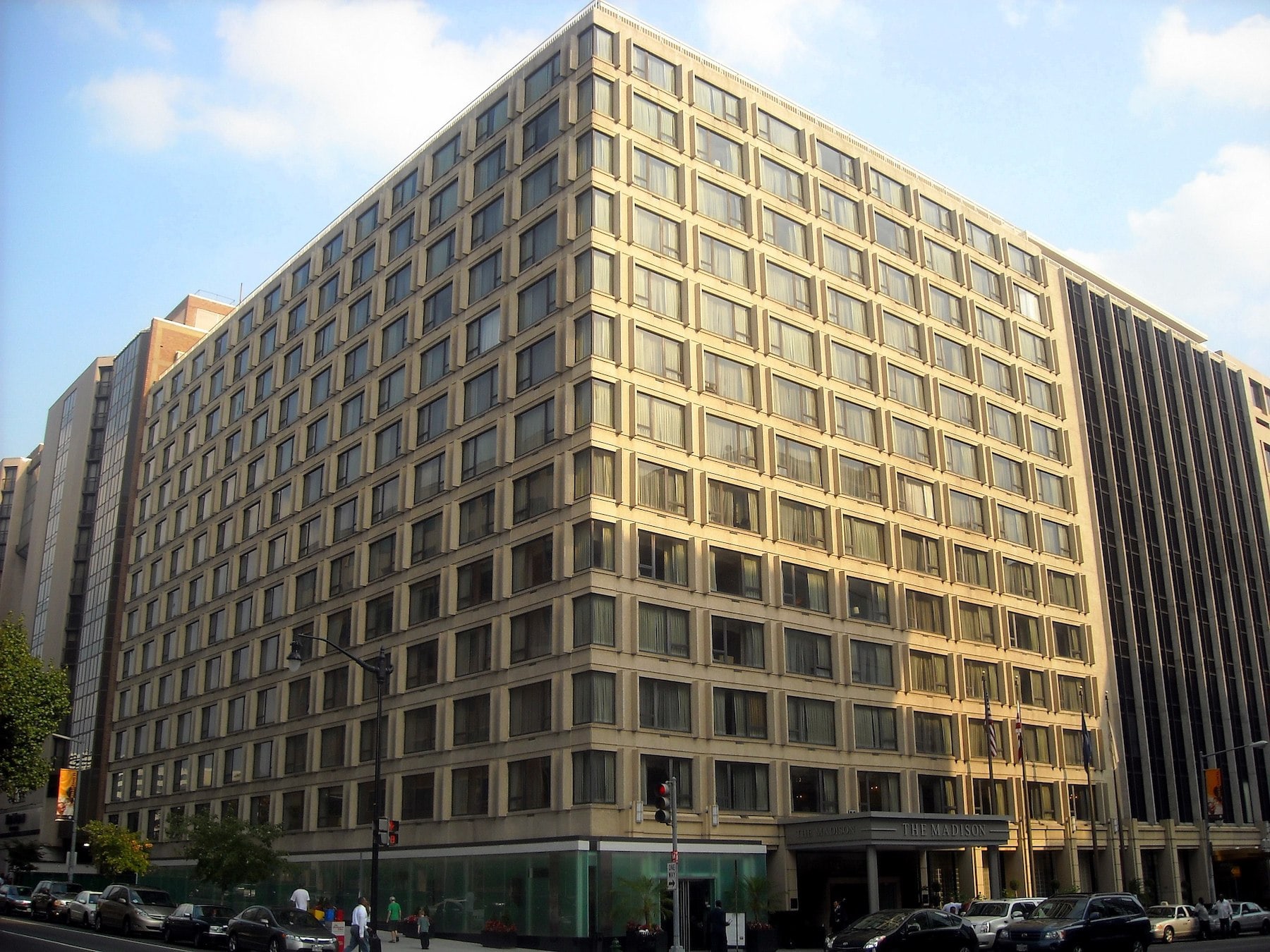A man claims he purchased a skyscraper using his credit card. He points out that the card he was using offers a 1% discount on purchases, and gives him 30 days to pay “which is worth 1%.”
For these calculations to be right, this would have to have taken place in the late 1980s – when interest rates were still high, but after cash back cards were first introduced. While interest rates in the U.S. haven’t hit 12% since 1979, they hit 12% last in Canada in the early 1990s shortly after cash back cards were introduced there.
What’s remarkable is,

 viewfromthewing.com
viewfromthewing.com
For these calculations to be right, this would have to have taken place in the late 1980s – when interest rates were still high, but after cash back cards were first introduced. While interest rates in the U.S. haven’t hit 12% since 1979, they hit 12% last in Canada in the early 1990s shortly after cash back cards were introduced there.
What’s remarkable is,
- The seller was willing to take a credit card. While card acceptance for many retail businesses is cheaper than cash, a funds transfer for a single large transaction is going to be less expensive than credit cards – by a lot.
- This likely means that he could have just as easily negotiated a lower sales price. That is not always more advantageous.
- Today he could have earned 2% back plus the float!

Man Buys $65 Million Skyscraper With A Credit Card, Earns $1.3 Million - View from the Wing
At 2 transferrable points per dollar, $65 million would translate to 130,000,000 points.
